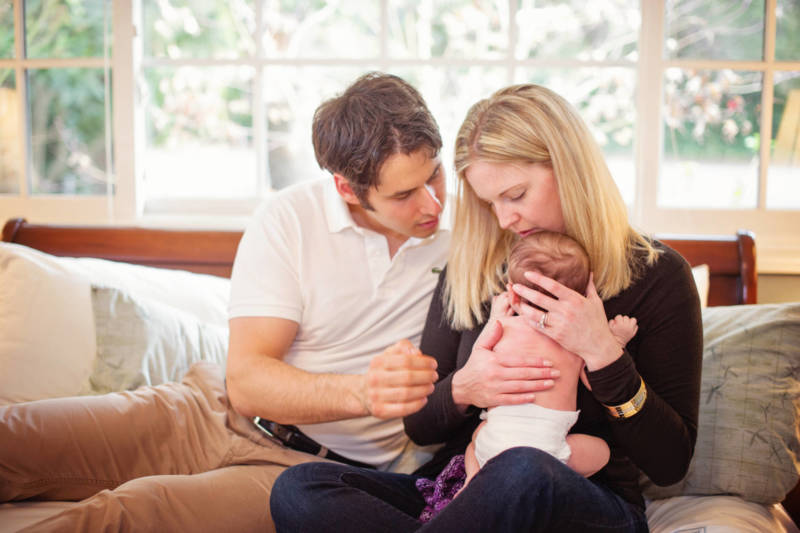“I can't imagine it's only happening here,” Coker said.
Four of the 10 patients with the condition had tested positive for the coronavirus, one had been vaccinated, and Coker is still working to determine the COVID status of the other five. She's currently writing a paper about her observations, which will join a few others that have been published about postpartum psychosis and COVID-19.
A study of three cases in India where women had postpartum psychosis and tested positive for COVID-19 surmised the cause was likely psychological and stress-related, as opposed to biologically triggered, though other papers have hypothesized that the inflammatory response to COVID-19 could play a role in psychiatric complications or delirium.
Coker believes the cases in her hospital were triggered by pandemic-related stress, because the women’s symptoms were so classically indicative of postpartum psychosis. These included paranoia, disorganized thoughts, irritability and difficulty sleeping.
Also, the condition is usually triggered by stress, and, during the pandemic, new moms have had plenty of that: They were all isolated, receiving very little help with their new baby.
“Their families won't come to their house because of COVID, and they don't want people coming to their house because of COVID,” she said.
At El Camino Hospital in Mountain View, reproductive psychiatrist Dr. Nirmaljit Dhami is seeing those same stressors play out among her patients. Visits from grandparents or siblings are canceled because of COVID travel restrictions and stay-at-home orders; new moms aren’t meeting other moms; and they can’t go to the gym or do other things they normally would to get a break from the baby.
“They don’t have the usual support mechanisms in place that they used to have before,” Dhami said.
Though she hasn't noticed an increase in postpartum psychosis cases, she has seen a significant increase in postpartum depression and anxiety. A survey by Brigham and Women's Hospital in Boston found 36% of pregnant and postpartum women had significant levels of depression during the pandemic, compared to pre-pandemic rates of 15% to 20%.
But Dhami believes the full tidal wave of postpartum mental health cases has yet to hit, because new moms are putting off care right now, and because the mental health screening that is being done is taking place through computer visits.
“They don't capture the finer nuances of a mental health presentation,” Dhami said. “They don't generate the same level of trust and openness that an in-person visit does.”
Postpartum psychosis symptoms, in particular, are often missed by obstetricians, Dhami says, because they tend to wax and wane, with women appearing lucid one moment, but confused and disorganized in another. Untrained physicians have difficulty spotting the disorder, even in non-pandemic times.
With increased vaccinations and safety protocols, Dhami hopes obstetricians will go back to in-person checkups soon, so they can diagnose and start treating postpartum mental illness early.

